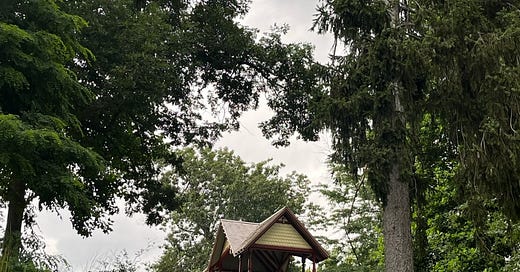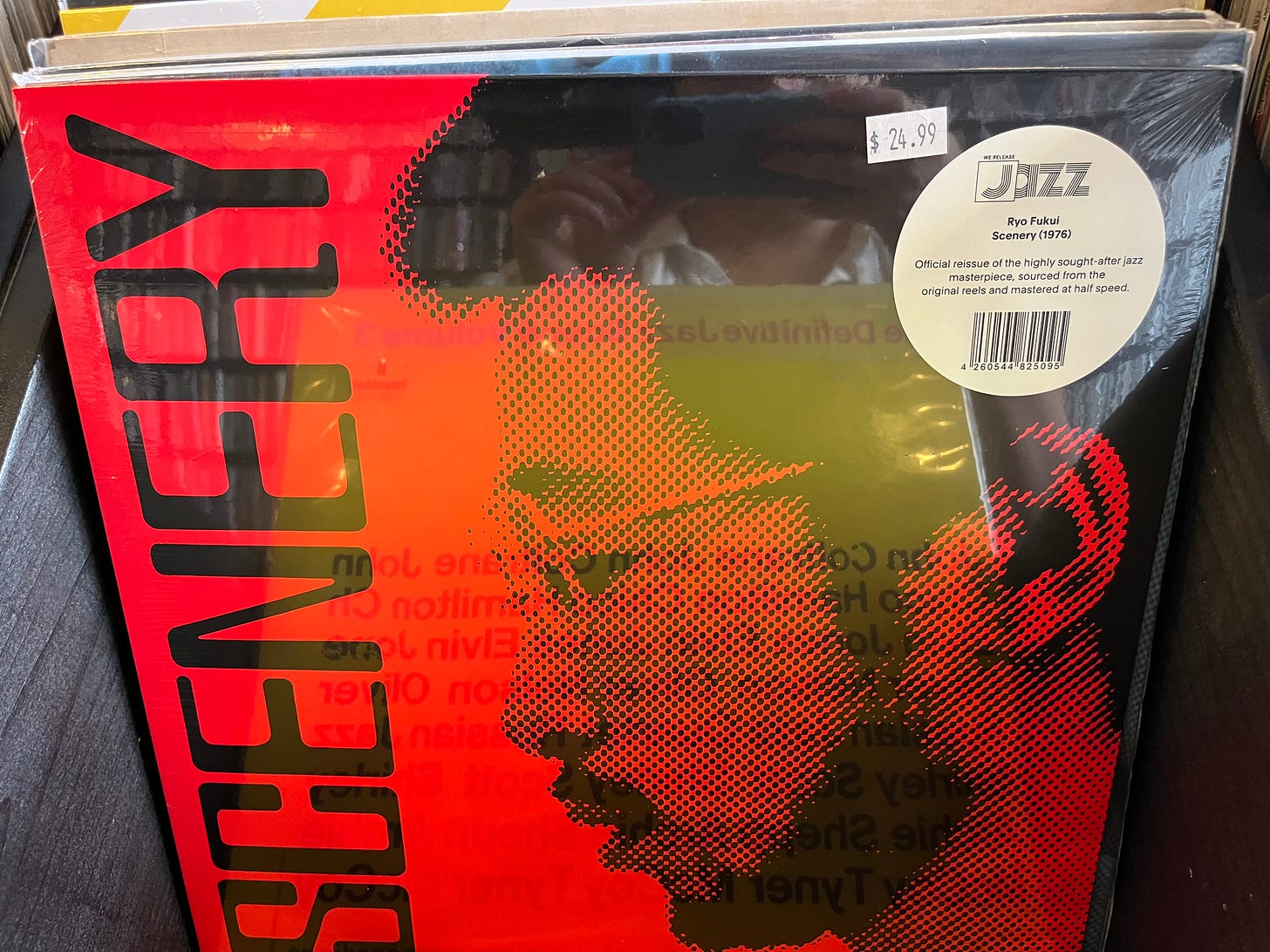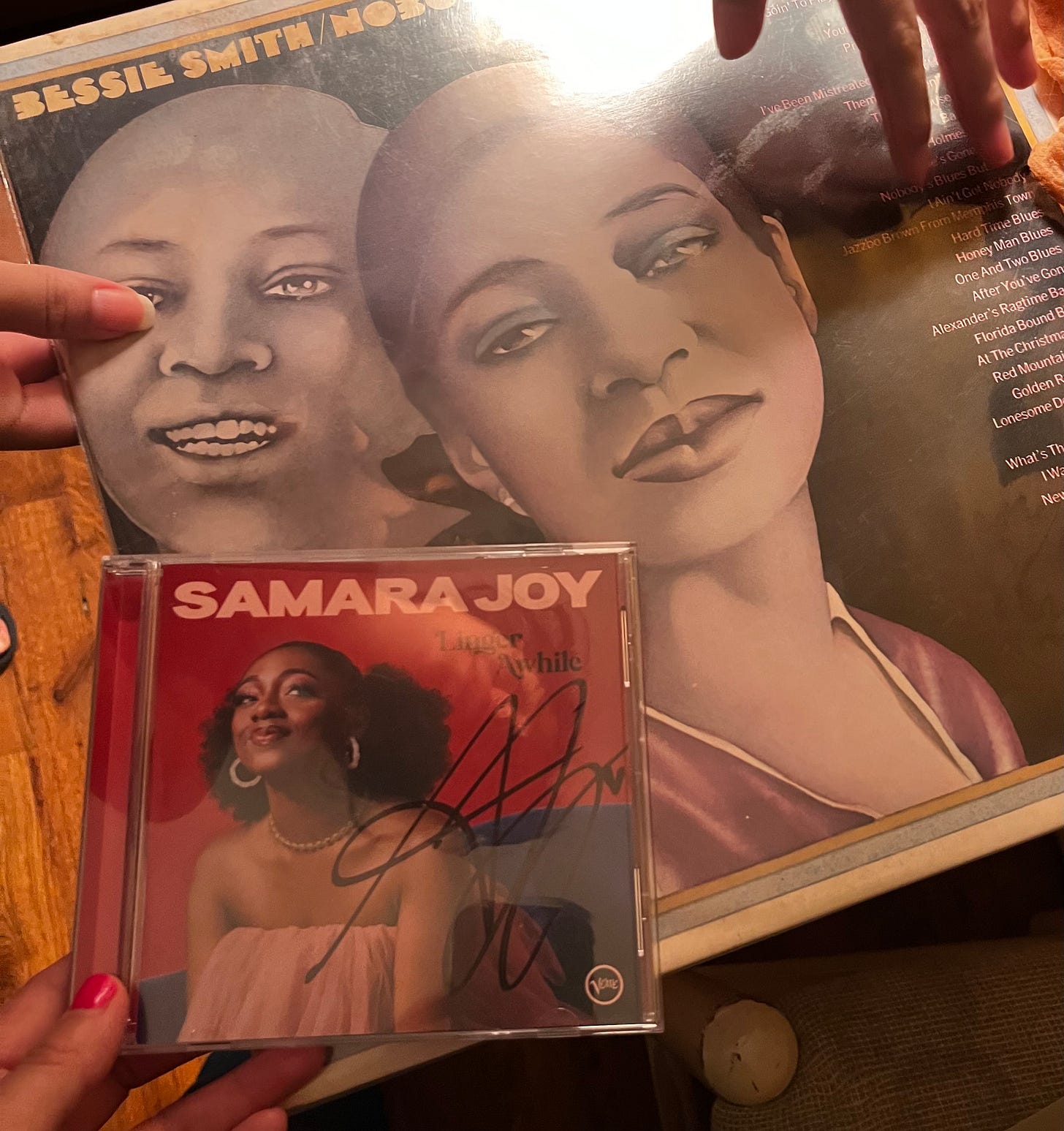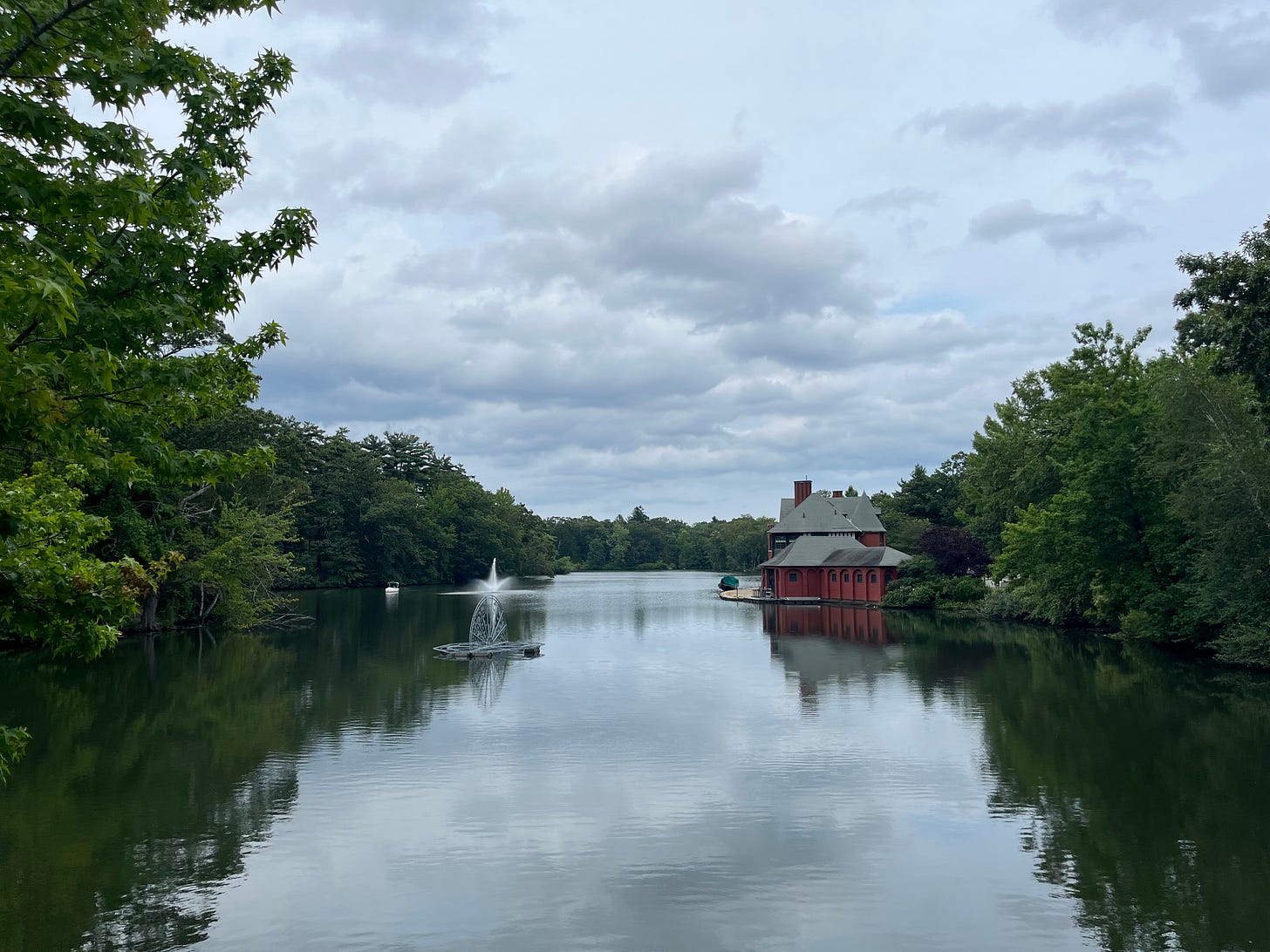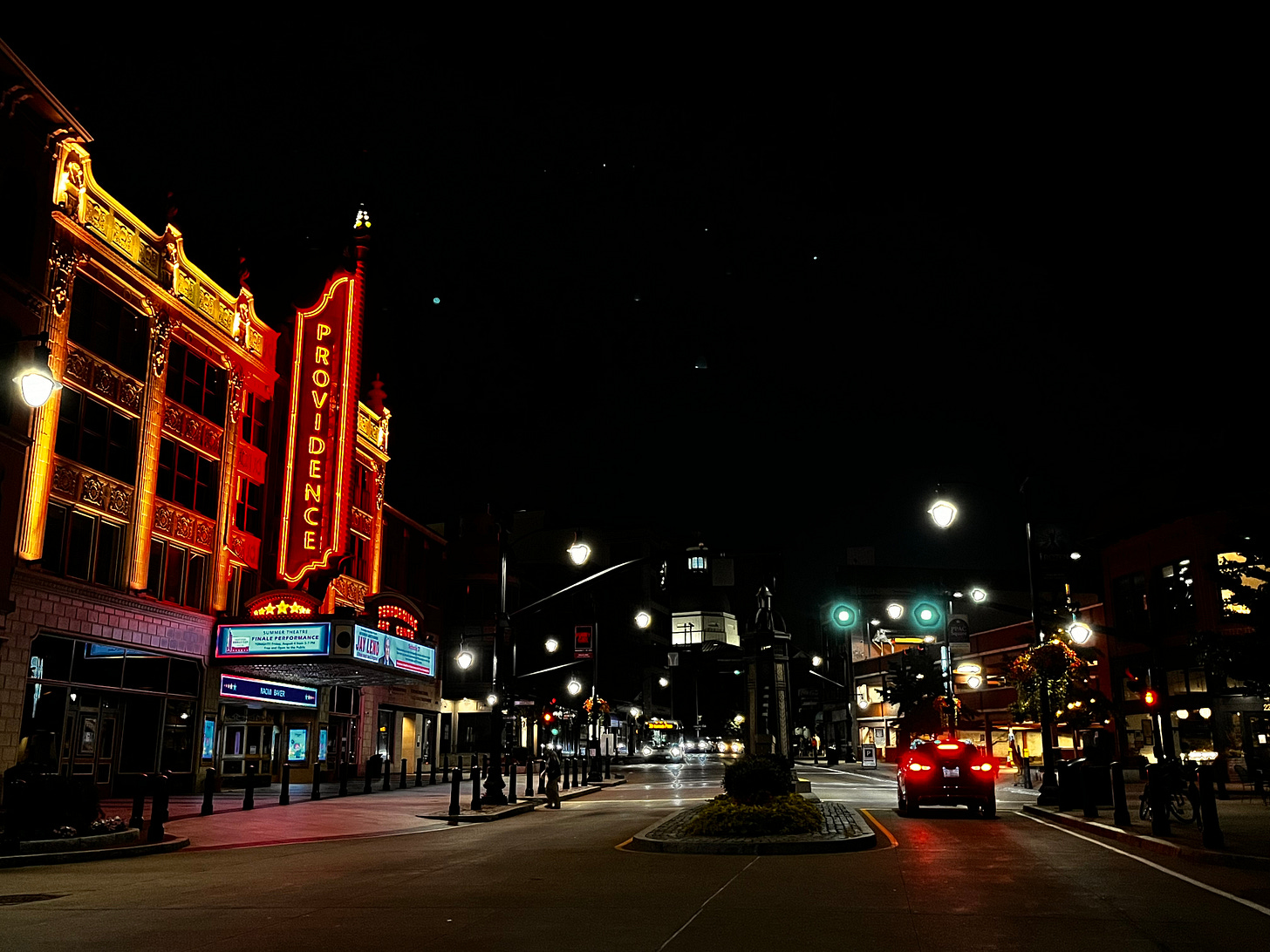Rhode Island Part I: Exploring Providence
I was busy moving and doing other writing projects, but now I'm back!
I’ve been in a brain fog after socializing for too many days. Are we so used to our Zoom lives that when we go outside it hits us differently? There’s so much visual and auditory input. At first, it’s always awkward, but then you feel a room, and see familiar faces, or even if you don’t, you can strike up a conversation. And when you hear stories, personal or not, it feels comforting to be in the human experience.
This is supposed to be a post about Rhode Island. I never thought about Rhode Island before. It sounds expansive and blue (I’m thinking of Jamestown, and the pretty boats), but I never really had a reason to go up there. It’s an underrated quiet place.
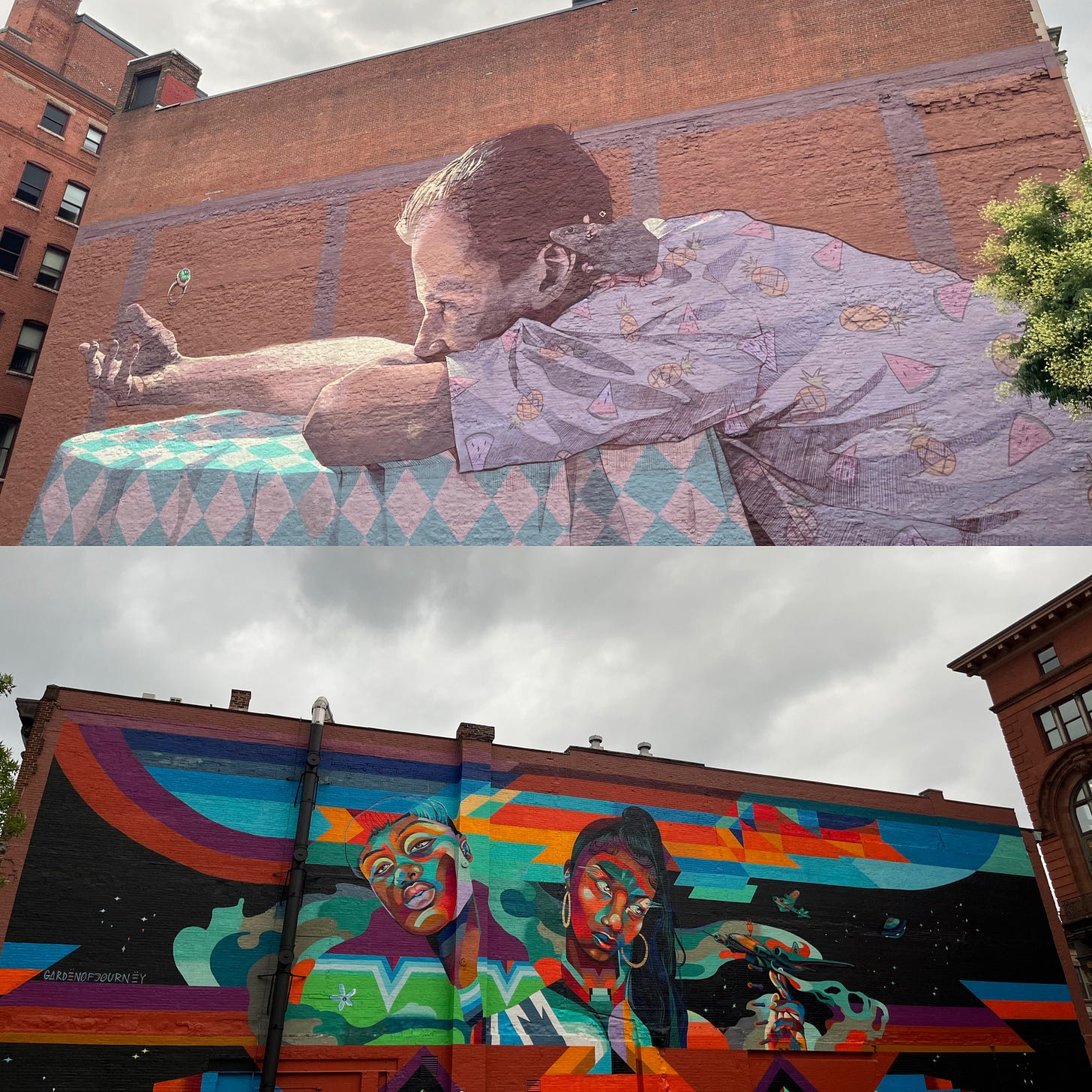
We went on a mother-daughter trip to the Newport Jazz Festival, at the insistence of my sister who’s a singer, guitarist. We stayed in Providence since everything was booked in Newport (also parking is a hot mess around there, according to reddit). We slept in a former convent turned Airbnb with private rooms in Federal Hill. We thought it was going to be crowded, but I rarely saw anyone, except for some girls who were also there for the concert. It was near Atwells Ave, which has a long strip of eateries and stores, though we mostly bought snacks and food from the market, so we didn’t eat outside too many times, though we managed to find a cute breakfast place, nicks on broadway.
On Atwell street, we found a Heartleaf Books, among seemingly generic Italian restaurants. The bookstore carried literary fiction and memoirs I had on my radar, as well as other genres, fantasy, history, and gardening books. They also had the cutest stickers. I picked up a few for my car. I read the intros of some books, new titles by some favorite authors, tempted to buy them, and noted them for later in case I came back.
At the record shop, Armageddon, we searched for records. Duh! By accident, I stumbled onto the hardcore metal section and then punkcore. Thankfully, my sister pulled me back to reality— the Jazz section, which seemed more relevant. Inside, it was mostly skinny white dudes, walking around. One was standing by the back section with a baggy tee and long scraggly, Jesus hair. There was a guy by the cash register with dark-rimmed glasses and a black cap. The other ones were similar copies. One said hello when we walked in, and didn’t bother us as we kept looking. My sis was more enthralled than me, since I don’t plan on getting a record player any time soon. My sis found Bessie Smith’s album, one of the earliest stars of classic blues, which at the time was dominated by African American women. She has an old timey voice rooted in the 1920s that can travel to modern day.
My sis was stuck on continuing her search for more vinyl treasures. I went outside to find my mom, who eventually got bored and kept walking. When I caught up to her, she was a few blocks away. “It smells like sewage,” she said, eyeing the construction in the nearby buildings. We walked back and sat by a stoop outside a gray Victorian home, not caring about what owners would pop out. We were tired of walking. My sis eventually appeared holding her new Bessie record.
Later that day, we drove to Roger Williams Park, mostly staying in the Japanese garden. We debated if we wanted to go on the boat pedal. But we decided against it, and instead walked, and took photos.
The park is listed on the National Register of Historic Places, named after the founder of the state, Roger Williams, a badass puritan from England who escaped religious persecution.
When Europeans were first making their way around in the 1500s, there were five indigenous tribes in the area: the Pequots, the Nipmucs, the Niantics, the Narragansetts, and the Wampanoags.
Williams socialized and negotiated a land treaty upon his arrival in the 1630s with the Narragansett and Wampanoag leaders. The Colony of Rhode Island eventually became a haven for religious and political dissenters, earning it the nickname, "Rogue's Island.” Williams was a strong advocate for religious freedom, separation of church and state, and fair dealings with the Native Americans. And maybe, that’s why he was eventually banished. He attempted to protect Indian land from expropriation, becoming involved in disputes with neighbors and developers from surrounding colonies.
For a minute there, I thought Rhode Island was lightyears ahead of the rest, since it enacted this country’s first law prohibiting slavery in 1652, way before the Civil War, but they didn’t actually enforce it. You couldn’t own a slave for a lifetime, but they permitted ownership for 10 years or less. So yea, they sucked all the same.
I realize now, Providence is kind of a godly word. It means, divine guidance or care. I don’t know if I felt that while driving around. I tried to be prudent though, since I didn’t know the lay of the land. There was barely any traffic, a car passing here and there. It was so quiet, like a movie set, and the streets wide, so maybe that’s divine. There’s also not much development or movement, which is not a bad thing; it’s just different from the crowded cities I’ve traveled to. They keep their old house well-maintained in most areas, and downtown Providence still has rows of historic buildings (19th-century mercantile buildings with Federal and Victorian architectural styles) with post-modern and modernist buildings peeking out.
Some of those are owned by the five universities that call this place home. We didn’t have time to walk around too much at night, but managed to stop by the Performing Arts Center, and a Korean spot, Mokban.
More about the Newport Jazz Festival on the next one!
Writing Opportunities
FIYAH Literary Magazine: submissions for short fiction, novelettes and poetry from Black Writers
The Xylom: personal essays related to science
Hammer & Hope: a magazine of Black politics and culture

